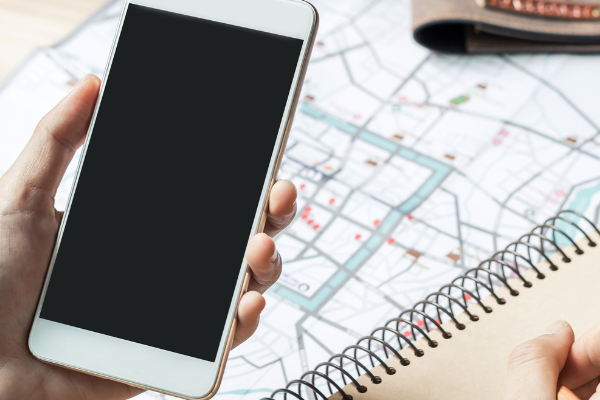When you are learning a language in immersion, you are taking on a tremendous amount of new information in a relatively short space of time.
It is perfectly natural that you should go through periods when you soak up new words and grammar easily and periods of consolidation. Knowledge needs time to sink in.

Brain turned to jelly? photo: skpy
While this can be really frustrating, bear in mind that the knowledge will become more deeply lodged and is more likely to stick if you take your time while learning.
Plateaus when in immersion
 photo: Ed Yourdon
photo: Ed Yourdon
Learning in long-term immersion is the most effective way to develop functional fluency in a language. Even so, from time to time you may well feel that you have reached a plateau and those new words are just not sticking. Hey, you’re only human after all!
Here are some ideas that may help:
1. Try something different
A change is as good as a rest. If you are on a long-term language study trip, you will benefit from changing your surroundings, even if just for a weekend. Of course, many students find something new to see and do every single weekend.
New surroundings and activities naturally bring with them new vocabulary, which is much more likely to stick.
Also, consider a change in your technique. If you spend most of your time learning with your head buried in a book, get out there and chat with people. If you never write in your target language, try sending some emails to people you have met. If you haven’t picked up a local paper, perhaps now is the time.
2. Stop hanging around with people who speak your mother tongue
Or at least try and spend more time with people who don’t speak your mother tongue. It’s perfectly normal to want to spend time with people who speak your first language, but it doesn’t help you to learn a second language. Make the most of your time abroad!
3. Read
Read the newspaper, read magazines, read a book… whatever you enjoy. Reading in the language you are learning will help develop your vocabulary.
4. Change of language
This sounds counterintuitive, but if you are on a long-term trip, you may benefit from a couple of days away from the language you are learning. For example, if you are learning Spanish in Latin America, take a week in Brazil.
Does that sound unusual? The feeling of being surrounded by another new language will help you to realize just how far you have developed with your original target language. Upon returning, you will have a fresh boost of confidence and a clear head ready to soak up more information.
5. Flashcards
Fun activities and short holidays are refreshing but to make maximum progress you should support them with some traditional techniques. Flashcards are superb. Use them on long bus journeys or flights, spend twenty minutes a day working with them… however you choose to take advantage of them, flashcards are a language learner’s best friend.
They may not be glamorous, but they are incredibly effective, both when you are away and when you get back from your trip.
After you return home
 photo: Mike Baird, bairdphotos.com
photo: Mike Baird, bairdphotos.com
Your language development will slow down when you are no longer immersed in the language you want to learn and it may stall completely if you are not careful.
You may still have those trusty flashcards that served you so well in Bolivia, but somehow it doesn’t feel the same reading them when you’re not on a rickety bus creaking through the Andes. Again, that’s perfectly normal.
The big risk is that you will start losing the skills you worked so hard to gain in the first place.
So, how can you keep your language skills developing when you are out of immersion?
1. Local media online
The internet is full of resources for language learners. Once you have attained a good standard of a language, some of the best resources are local and national media outlets, where you can read, watch or listen to news stories, opinion pieces, and entertainment. This way, you will not lose the cultural aspects of the language, as well as keeping in touch with the grammar and vocabulary.
2. Podcasts
Instead of bopping to the latest bashment/gabba/Norwegian-disco mashups when jogging, you could download podcasts in the language you are learning. They are often free and many newspapers publish topical ones. Again, you will get that all-important cultural aspect while developing new vocab.
3. Books
You can easily order foreign language books from Amazon. Alternatively, you could consider placing an advert in a local paper or forum asking if anyone has any old books they don’t want. You don’t even have to head to the great authors for a good read… often a thriller or romance will be easier to read and more enjoyable.
4. Language swap
Websites like the mixxer allow you to meet people who want to learn your language and to help you to practice theirs. If you are a university student, there will probably be some kind of language exchange program available if you ask at the international students’ office.
5. Get back!
Get yourself back into the language you have learned! Even just a couple of weeks of study in immersion will help you reconnect with the language you learned, rediscover your fluency, and rebuild your links with the culture that comes with the language.
If you need a refresher to push your language skills further, you’re in the right place. Choose from our excellent selection of language courses in diverse destinations and combine an enjoyable break with language study.
What are your own tips for blasting through a language learning plateau?



What do you think?